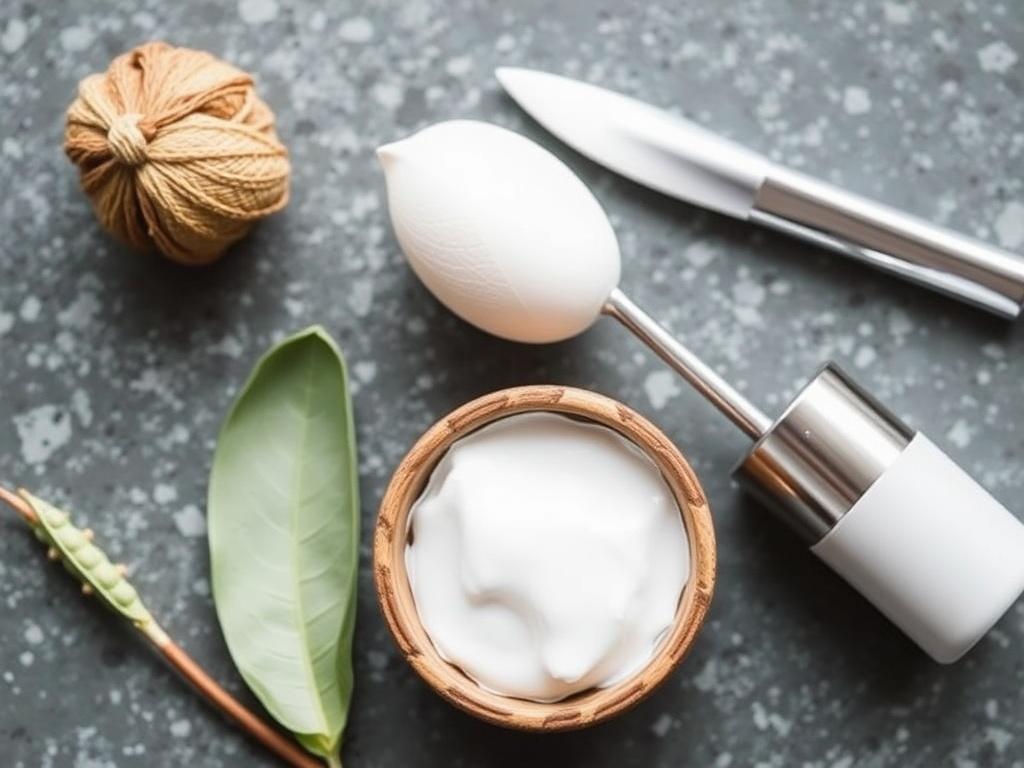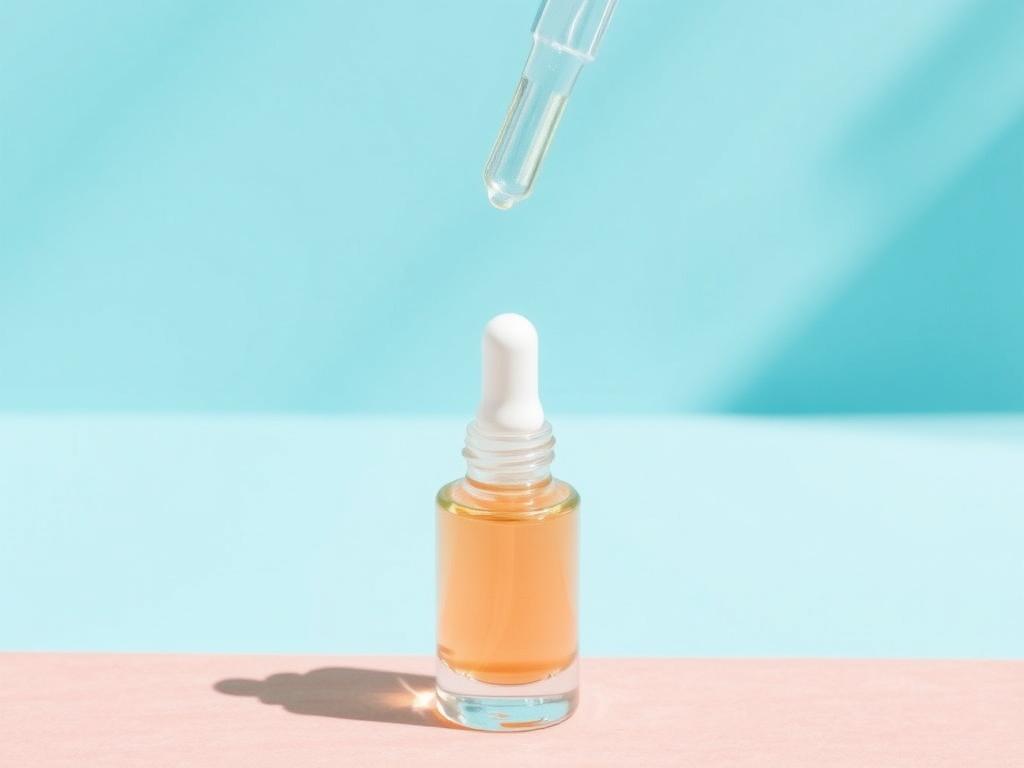Содержание статьи
- 1 Why Consider Natural Alternatives to Retinol?
- 2 How Natural Alternatives Work Compared to Retinol
- 3 Top Natural Alternatives to Retinol You Need to Know
- 4 How to Incorporate Natural Alternatives to Retinol into Your Skincare Routine
- 5 Common Questions About Natural Retinol Alternatives
- 6 Summary Table: Comparing Retinol with Natural Alternatives
- 7 DIY Natural Retinol Alternatives You Can Try at Home
- 8 Final Thoughts on Natural Alternatives to Retinol
- 9 Conclusion
Retinol has long been hailed as a powerhouse ingredient in skincare, celebrated for its ability to reduce wrinkles, boost collagen, and improve skin texture. However, not everyone can tolerate retinol’s sometimes harsh side effects, such as irritation, redness, and dryness. Whether you have sensitive skin, prefer natural products, or simply want to explore gentler options, natural alternatives to retinol are worth considering. In this article, we’ll dive deep into the best natural alternatives to retinol, exploring how these plant-based and nutrient-rich ingredients can help you achieve glowing, youthful skin without the unwanted side effects.
Why Consider Natural Alternatives to Retinol?
The popularity of retinol is no secret, especially when it comes to anti-aging skincare. Retinol, a derivative of vitamin A, works by accelerating cell turnover and stimulating collagen production. But, as effective as it is, many people find it too irritating, especially those with sensitive or dry skin. In addition to irritation, retinol photosensitizes the skin, meaning it can increase your skin’s sensitivity to the sun, requiring diligent use of sunscreen.
Many seek natural alternatives to retinol to avoid these downsides while still benefiting from anti-aging and skin-renewing properties. Plus, natural options tend to offer a gentler approach for maintaining healthy skin, making them suitable for all skin types, including sensitive and mature skin.
How Natural Alternatives Work Compared to Retinol

Retinol and its natural alternatives often share similar functions such as promoting cell turnover, boosting collagen, and fighting free radicals. However, natural alternatives usually do this more gradually and with fewer side effects. They can also bring additional benefits by delivering antioxidants, vitamins, and moisturizing ingredients that soothe and nourish the skin.
Here’s how some common natural alternatives function:
| Ingredient | Mechanism of Action | Skin Benefits |
|---|---|---|
| Bakuchiol | Mimics retinol by increasing collagen and cell turnover without irritation | Reduces wrinkles, evens tone, suitable for sensitive skin |
| Rosehip Seed Oil | Rich in vitamin A and fatty acids that support skin repair | Improves texture, fades scars, hydrates |
| Vitamin C | Potent antioxidant that stimulates collagen synthesis | Brightens skin, reduces pigmentation, protects from free radicals |
| Niacinamide | Boosts skin barrier and evens skin tone | Reduces redness, fine lines, and hyperpigmentation |
| Alpha Hydroxy Acids (AHAs) | Exfoliates dead skin cells to reveal newer skin | Improves texture, reduces dullness and wrinkles |
Top Natural Alternatives to Retinol You Need to Know
Let’s explore the most effective natural alternatives to retinol that are available today, each with unique qualities and benefits.
1. Bakuchiol: The Gentle Retinol Substitute
Bakuchiol is often referred to as the best natural alternative to retinol due to its remarkable ability to provide similar anti-aging effects without the irritation commonly associated with retinol. Extracted from the seeds and leaves of the Psoralea corylifolia plant, bakuchiol has antioxidant and anti-inflammatory properties. It encourages collagen production and boosts cell turnover, helping to smooth fine lines and wrinkles.
People with sensitive skin especially praise bakuchiol because it does not cause dryness or peeling. Clinical studies have shown bakuchiol to be as effective as retinol in reducing fine lines and pigmentation after consistent use over several weeks, but gentler on the skin.
2. Rosehip Seed Oil: Nourish and Repair
Rosehip seed oil is a skincare staple in the natural beauty community. Packed with vitamins A, C, and essential fatty acids, it supports skin regeneration and hydration. The vitamin A content in rosehip seed oil helps promote cell turnover, making it a natural candidate for those looking for the effects of retinol without irritation.
Additionally, rosehip oil’s fatty acids deeply nourish the skin, restoring softness and improving elasticity. If you struggle with dry or aging skin, incorporating rosehip seed oil into your routine can soften wrinkles, reduce dark spots, and improve overall skin texture.
3. Vitamin C: Brighten While Fighting Aging
Vitamin C is a powerful antioxidant that fights oxidative stress while supporting collagen production. Unlike retinol, which focuses primarily on cell turnover, vitamin C protects the skin from environmental damage and brightens the complexion, making it a great natural alternative for those targeting pigmentation and dullness.
Vitamin C serums are widely loved because they help fade dark spots and even out skin tone, enhancing your skin’s natural glow. However, it’s best used during the day since vitamin C can enhance sun protection when combined with sunscreen.
4. Niacinamide: Versatile Skin-Healer
Niacinamide, a form of vitamin B3, is a superstar multifunctional ingredient that supports the skin barrier, reduces redness, controls oil, and evens out skin tone. For anyone intolerant of retinol, niacinamide offers many complementary benefits such as anti-inflammatory effects and boosting collagen synthesis.
It is particularly beneficial for sensitive, acne-prone, or rosacea-prone skin that may react poorly to retinol’s exfoliating effects. Regular use of niacinamide helps minimize fine lines and melasma while improving texture.
5. Alpha Hydroxy Acids (AHAs): Natural Exfoliants
Derived from fruits and milk, alpha hydroxy acids such as glycolic acid and lactic acid gently exfoliate the skin by breaking down the bonds between dead skin cells. This promotes smoother, brighter skin and facilitates the absorption of nourishing ingredients.
While not a direct replacement for retinol’s collagen stimulation, AHAs renew the skin surface and reduce the appearance of fine lines and pigmentation. Because AHAs can increase sun sensitivity, they should be used alongside a daily sunscreen.
How to Incorporate Natural Alternatives to Retinol into Your Skincare Routine

Switching from retinol to a natural alternative requires a bit of experimentation to find what works best for your skin type and concerns. Here are some tips for incorporating natural alternatives safely and effectively:
- Start slow: Introduce one new product at a time, using it every other day to gauge your skin’s reaction.
- Layer wisely: Apply vitamin C in the morning to brighten and protect, and bakuchiol or niacinamide at night for gentle renewal.
- Moisturize: Many natural alternatives work best with a good moisturizer to maintain the skin’s barrier.
- Sunscreen is a must: Even natural exfoliants or vitamin C can sensitize the skin to UV damage, so daily SPF is essential.
- Be patient: Natural ingredients often take longer to show results compared to retinol but are gentler on the skin.
Common Questions About Natural Retinol Alternatives
Are natural alternatives as effective as retinol?
Natural alternatives such as bakuchiol and rosehip seed oil have been shown to offer comparable benefits in terms of reducing fine lines and improving texture, but they tend to work more gradually. For sensitive skin, they can be better tolerated than retinol. However, retinol may still provide more dramatic results in some cases.
Can I use natural alternatives alongside retinol?
In general, it’s best to avoid layering retinol with exfoliants or certain actives to reduce irritation. However, some people successfully incorporate niacinamide or vitamin C in the morning and retinol at night. Consulting a dermatologist can help create the best routine for your skin.
Which natural alternative is best for sensitive skin?
Bakuchiol and niacinamide are ideal choices for sensitive skin due to their anti-inflammatory properties and low risk of irritation.
Summary Table: Comparing Retinol with Natural Alternatives
| Feature | Retinol | Bakuchiol | Rosehip Seed Oil | Vitamin C | Niacinamide | AHAs |
|---|---|---|---|---|---|---|
| Source | Vitamin A derivative | Plant extract | Plant oil | Vitamin antioxidant | Vitamin B3 derivative | Fruit/milk-derived acids |
| Primary Benefits | Cell turnover, collagen boost | Anti-aging, gentle exfoliation | Hydration, repair, rejuvenation | Antioxidant, brightness | Barrier repair, redness reduction | Exfoliation, brightness |
| Suitability for Sensitive Skin | Low (can irritate) | High | High | Moderate | High | Moderate (needs sun protection) |
| Side Effects | Dryness, peeling, redness | Rare irritation | Rare | Possible tingling | Rare | Sun sensitivity |
DIY Natural Retinol Alternatives You Can Try at Home
If you’re keen to try some natural alternatives at home, here are a few simple recipes that incorporate natural ingredients to replace or complement retinol in your skincare routine:
- Bakuchiol Serum: Combine 1 tbsp of bakuchiol oil with 1 tbsp of jojoba oil and a few drops of vitamin E oil for a gentle, anti-aging nighttime serum.
- Rosehip and Aloe Face Oil: Mix 1 tbsp rosehip seed oil with 2 tbsp aloe vera gel for a hydrating and calming face treatment.
- Vitamin C Mask: Blend 1 tsp powdered vitamin C with 1 tbsp honey and apply as a brightening mask for 10-15 minutes.
- Niacinamide Toner: You can purchase niacinamide powder and dissolve a small amount in distilled water to create a soothing toner, but be cautious with concentrations.
Always patch test homemade skincare products first to ensure compatibility with your skin.
Final Thoughts on Natural Alternatives to Retinol
0
Choosing between retinol and natural alternatives ultimately depends on your skin type, personal preferences, and skincare goals. Fortunately, today’s natural alternatives to retinol provide many of the anti-aging and skin-renewing benefits without the common side effects like irritation and dryness. Ingredients such as bakuchiol, rosehip seed oil, vitamin C, niacinamide, and AHAs each offer unique benefits to rejuvenate your skin naturally and gently. By incorporating these alternatives thoughtfully into your skincare routine—alongside proper sun protection and hydration—you can enjoy radiant, youthful skin while honoring your body’s natural rhythms and sensitivities.
Conclusion
In the world of skincare, natural alternatives to retinol have earned their place as effective, gentle options for maintaining and improving skin health. Bakuchiol stands out as the closest mimic to retinol’s benefits without harsh irritation, while rosehip seed oil nourishes and supports skin healing. Vitamin C brightens and protects, niacinamide heals and strengthens, and AHAs gently resurface for a smoother complexion. Each of these ingredients offers its unique harmony with the skin, making them excellent choices for those seeking results without compromising comfort or safety. Whether you are sensitive to retinol or simply drawn to natural skincare, embracing these alternatives can lead to revitalized, glowing skin that feels as good as it looks. The key is consistency, patience, and a commitment to self-care—your skin will thank you.

